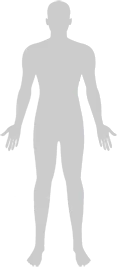Symptoms related to this disease may affect different systems of the body. Use the 'Filter and Sort' function to learn more about which body system(s) are affected by this disease and their associated symptom(s).
- Home
- Browse by Disease
- Ledderhose disease
Ledderhose disease
- Other Names:
Plantar fibromatosisPlantar fibromatosis
Read More
Read Less


